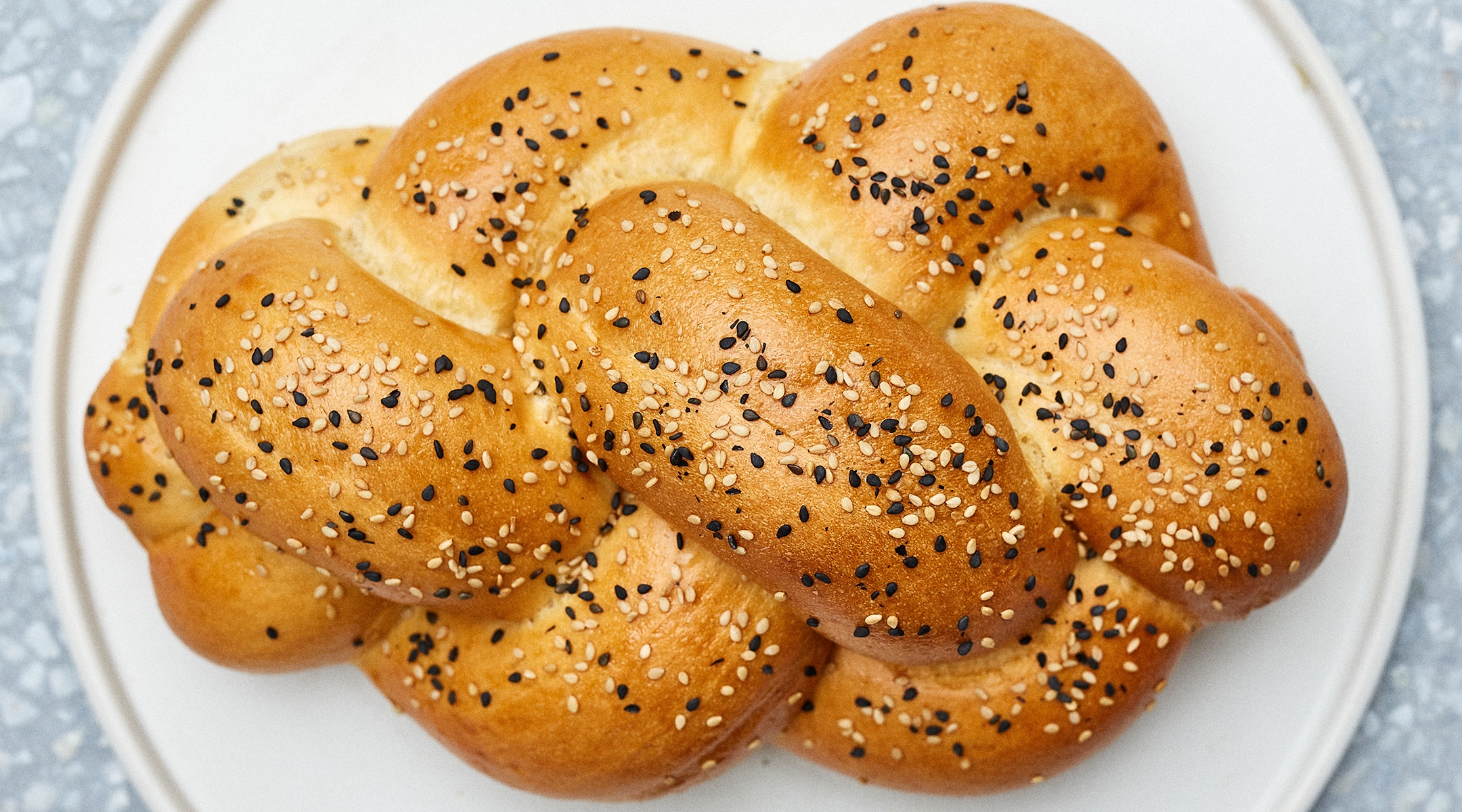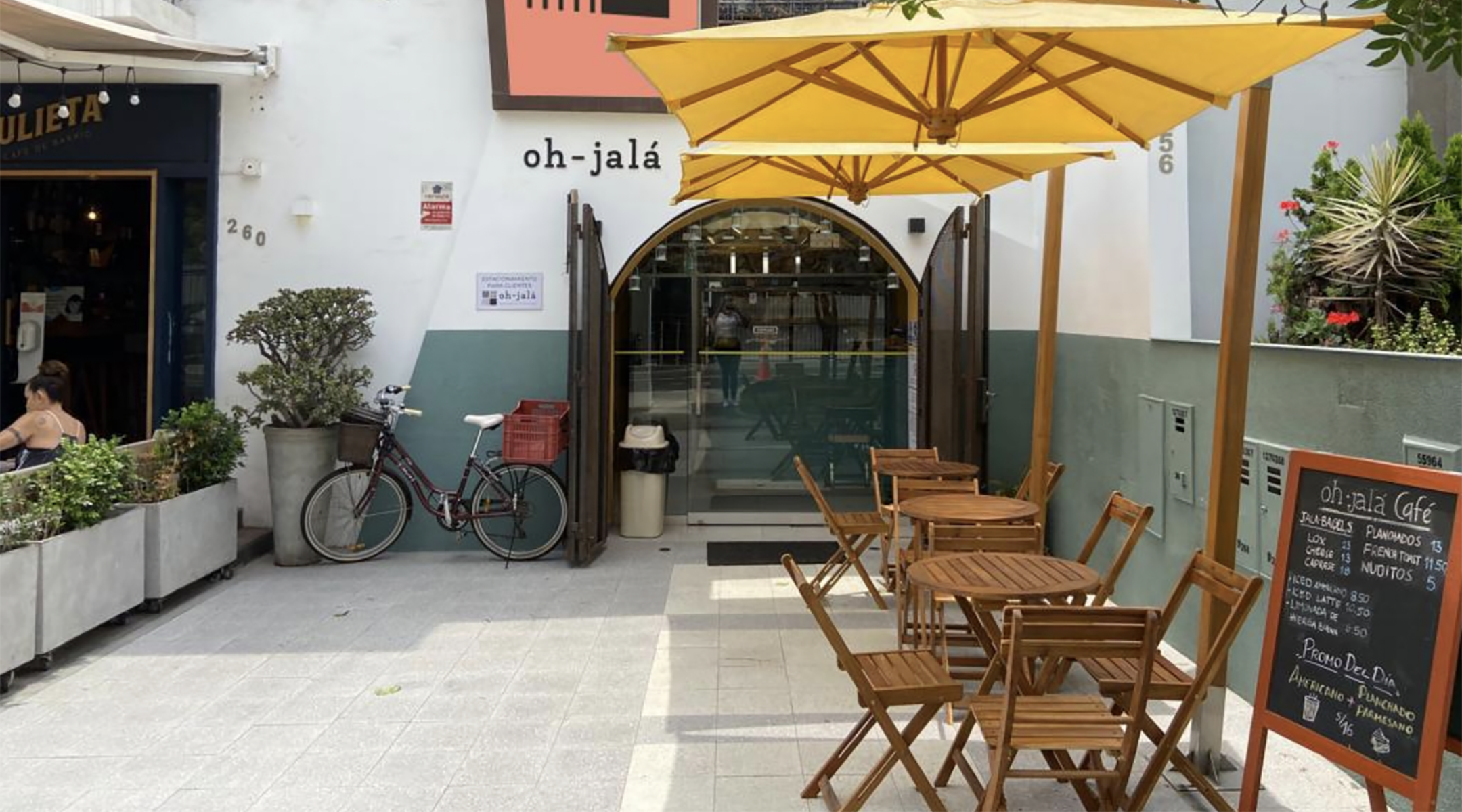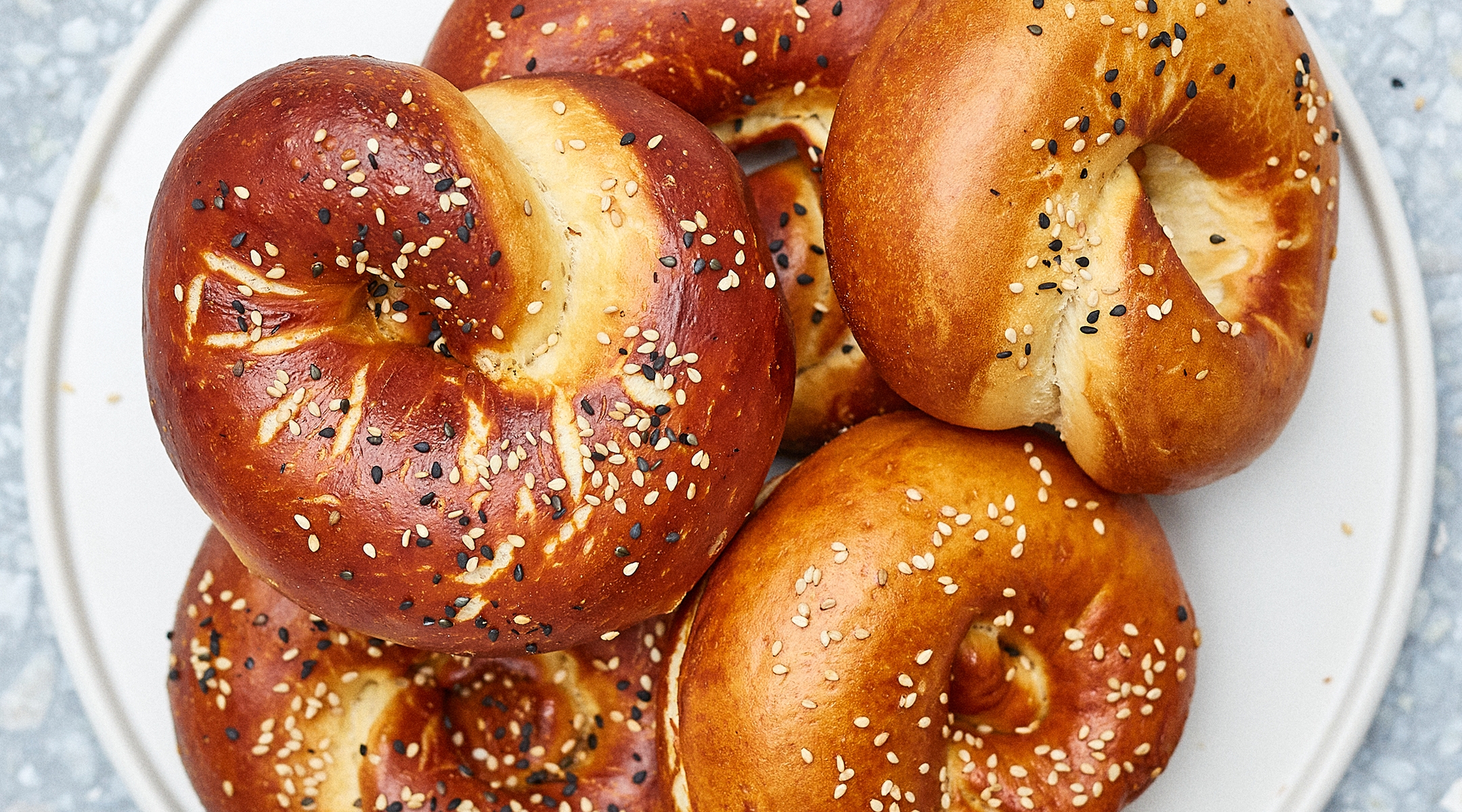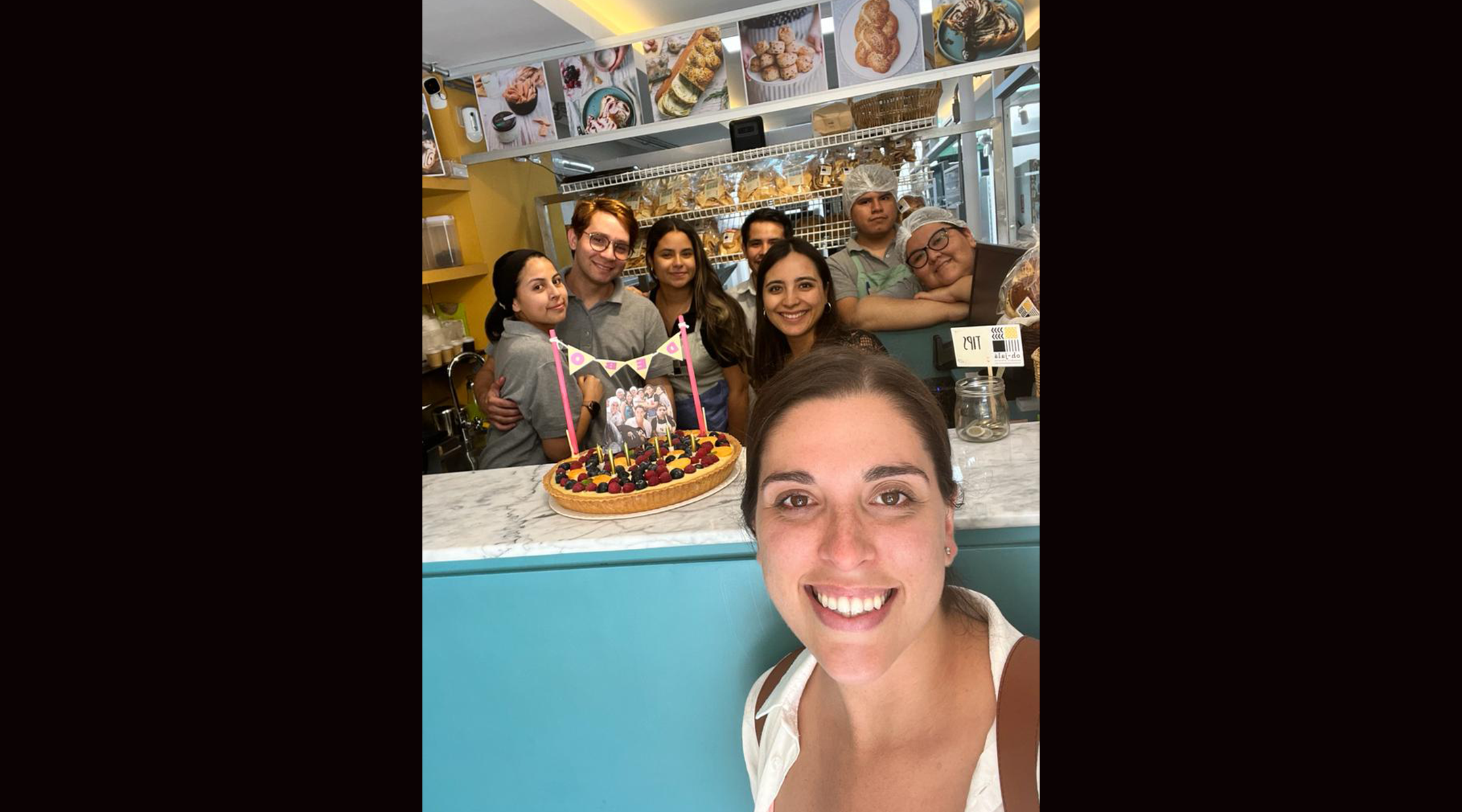The founder of Peru’s only Jewish bakery looks to educate non-Jews through food — and Instagram stories
After founding Oh-jalá, Deborah Trapunsky felt more comfortable

One of the many challah varieties sold at Oh-jalá in Lima. (Courtesy of Deborah Trapunsky)
LIMA, Peru (JTA) — The story of Lima’s only Jewish bakery begins on Christmas.
On the eve of the holiday in 2016, Deborah Trapunsky was baking challah for a non-Jewish friend who wanted a unique gift for her boyfriend. Her friends had always loved her challah, and she enjoyed sharing this aspect of her culture with them. But on that night, Trapunsky figured that she would see if anyone else would be interested in some challah to go with their Christmas dinner. So she posted on Facebook.
The response was overwhelming.
Trapunsky ended up receiving nearly 100 orders, and without a professional oven, she barely kept up with the demand. Using her parents’ small kitchen to complete the orders, Trapunsky said that she had to “colonize” her parents’ apartment — using every countertop to knead dough, laying out challahs throughout the rooms to cool down and then packaging them.
As she drove around Lima on Christmas day completing all the deliveries, as the majority of Peruvians were celebrating with their families, Trapunsky hatched a plan to turn the unexpected response into a business.
“I was really surprised when the orders started to grow and grow,” she said. “I had no idea about anything, no idea how much challah I could bake, no idea how to do the packaging…but that’s how it all started.”
She named her creation Oh-jalá — a bit of wordplay, as “ojala” means “I hope” and jalá is the Spanish word for challah, the braided Ashkenazi bread traditionally made on Shabbat and holidays.
Seven years after that Christmas Facebook post, the bakery has moved from a cramped 120-square-foot kitchen to a 1,200-foot brick and mortar space that opened in 2020 in a garage of an old colonial home in the posh neighborhood of San Isidro.
Trapunksy, who is 30, has gone from selling four flavors of challah to 12 — including vegan and nutella varieties — and has expanded from only selling challah to offering coffee, hamantaschen (for Purim), a variety of sweetbreads and even bagels. (She made sure to add the disclaimer that hers are not on par with New York bagels but that they suffice for the traveler in Peru who is craving the Jewish-American staple).
Over the years, Trapunsky’s clientele has also shifted from mostly Jewish customers — who found her after the initial Christmas rush — to mostly non-Jews. She therefore sees Oh-jalá as more than a job: it’s her attempt to combat stereotypes, encourage the integration of Jews into Peruvian society, and perhaps most importantly, it’s her attempt to forge a unique Jewish-Peruvian identity for herself.

“Here in Peru people like ‘different’ [cultures and cuisines], and being Jewish in Peru is very different,” Trapunsky said. “And I really enjoy having a bakery that exists at the intersection between this minority community and the larger Peruvian world.”
Jewish Peruvians make up fewer than .01% of the country’s population of 34 million and are mostly concentrated in the capital Lima. Trapunsky and her family are currently close with other members of the community here, but they didn’t always fit in.
Like many South American Jews, her family mostly descends from Eastern Europe. Before 1998, they lived in Chile, but looking to leave financial struggles behind, the Trapunskys left for Peru. Siblings, parents, cousins, aunts and uncles all lived together in an old house in Lima. Trapunsky recalled these memories fondly, as she was only a child and enjoyed being with her cousins. But she also remembers the tension between her parents and uncles and aunts, as their economic hardships were compounded by feeling like outcasts among Lima’s Jews.

Lima’s Jewish community of around 2,000 is very wealthy, and the Trapunskys came to Peru with almost nothing. Starting from scratch, they had to fight for a place within a community that Deborah describes as “hermetic.” She spent much of her childhood feeling like she didn’t belong in the traditional but not Orthodox community that was supposed to embrace her. It made her bitter.
“The Jewish community here is very closed-minded. When [my family] arrived in Peru, we didn’t have any money…I was young but I remember feeling the struggle of my family trying to exist in an unwelcoming community,” Trapunsky said. “So although I’ve always felt grateful for being Jewish and for the Jewish community here, I also have always felt a little resentment.”
After graduating from Peru’s only Jewish high school, she went to university and immersed herself in the non-Jewish world. She quickly discovered that the majority of Peruvians know very little about Jewish people, and what they do know is often based in stereotypes and anachronisms. She often tried to educate her peers about Jewish holidays, traditions and food, and through that process felt more Jewish than she ever had.
“Sharing my culture with friends helped me discover what made me feel Jewish. When I was only spending time with other Jews, I lost the ability to identify myself by contrasting myself to others,” she said. “But being immersed in Peru’s secular world gave me the opportunity to connect to my Judaism in a very different way.”
She added that she thinks the insularity of Lima’s Jewish community leads non-Jewish Peruvians to view the community with suspicion and reinforces negative stereotypes about Jewish people. With Oh-jalá, Trapunsky is trying to change that — to foster interaction between local Jews and others, and to show Peruvians how Jews enrichen their society.

“Food is a safe and secular space,” she said. “It gives me the opportunity to share cultural information in a non-political manner.”
But Oh-jalá’s physical space is not the only tool that Trapunsky uses in her mission — she also uses the bakery’s Instagram account to educate Peruvians about Judaism. With more than 18,000 followers, she does educational Instagram stories on Sukkot, Pesach, and other Jewish holidays. She even did an Instagram live video on “Judaism 101.” In a series of highlighted stories on her page, she talked about topics ranging from the fasting on Yom Kippur to why Jews don’t celebrate Christmas to, of course, the origins of challah.
As a result, she has received hundreds of positive direct messages from Peruvians eager to learn more about the religion and compare Judaism to their own Catholicism. She said this was her exact goal.
“I want to overturn the hermetic reputation of the Jewish community and turn it into something accessible, open to the public, and even trendy,” she said. “I want everyone in Peru to be able to get to know us… and explore our culture.”
Starting Oh-jalá has also helped her let go of the resentment. She now not only feels more secure in her identity as both Peruvian and Jewish, but also more of a valued member in the Lima Jewish community.
As the financial success continues, Deborah is focused on the future. She wants to franchise her bakery and plans to open another one on the other side of the city.
Ever the entrepreneur, she also made sure to tell the Jewish Telegraphic Agency that she’s looking for investors — and for a Jewish boyfriend.
This article originally appeared on JTA.org.
















